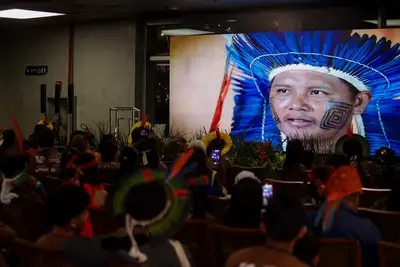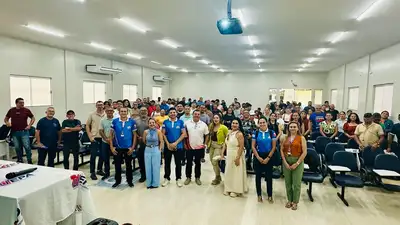Uepa Professor Pedro Vasconcelos is one of the most influential scientists in the world
Born in Monte Alegre (PA), Pedro Fernando da Costa Vasconcelos is once again cited in the prestigious ranking of Stanford University, USA

Professor Pedro Fernando da Costa Vasconcelos from the State University of Pará (Uepa) is once again among the 100,000 most influential scientists in the world. He is included in the eighth edition of the ranking Updated Science-wide Author Databases of Standardized Citation Indicators, year 2025, prepared by Stanford University in the United States in partnership with Elsevier Publishing. The Uepa researcher stands out among the top 2% of the most influential scientists in their fields and has been listed in this global ranking since 2020.
The list for the year 2024 evaluates, on a global scale, the impact, number of citations, and relevance of scientific production in various fields of knowledge. The ranking uses data from the Scopus database (Elsevier). The professor's scientific works have accumulated hundreds of citations, establishing themselves as references in their field. His career includes extensive academic production, with over 371 published articles and 65 chapters in books and scientific journals in Brazil and abroad.
A full member of the Brazilian Academy of Sciences and a professor for over 17 years in the Medicine course at the Center for Biological and Health Sciences (CCBS), Vasconcelos has extensive experience in microbiology, tropical medicine, and pathology, with a special focus on virology. Among the published articles, the professor highlights: Newborns with microcephaly in Brazil and potential vertical transmission of Oropouche virus: a case series (Lancet Infectious Diseases, 2025).
"In this multidisciplinary and multi-institutional study, a partnership of the Evandro Chagas Institute, Uepa, and other institutions, we demonstrated for the first time in the world that the Oropouche virus (VORO) is capable of causing congenital transmission during the pregnancy of women who became infected with VORO. Furthermore, VORO was responsible for severe cases of congenital transmission causing microcephaly and other congenital malformations, fetal deaths, and abortions, similarly to what was caused by the Zika virus, significantly increasing the importance of studying this virus in terms of public health," he explained.
In addition to inspiring undergraduate and graduate students, the ranking results drive the advancement of knowledge and strengthen Uepa's projection in the global scientific landscape. For Professor Pedro, being among the top 2% of the most influential scientists is a source of pride and happiness, "but with a feeling that the country needs to improve investments in science, education, and technology so that we can have more scientists in this ranking and help in the development of Pará and the Amazon, because without quality science, education, and technology, there is no development, and in an extremely competitive world, delay will maintain the status quo, the current context," he emphasized.
Text by Diane Maués









